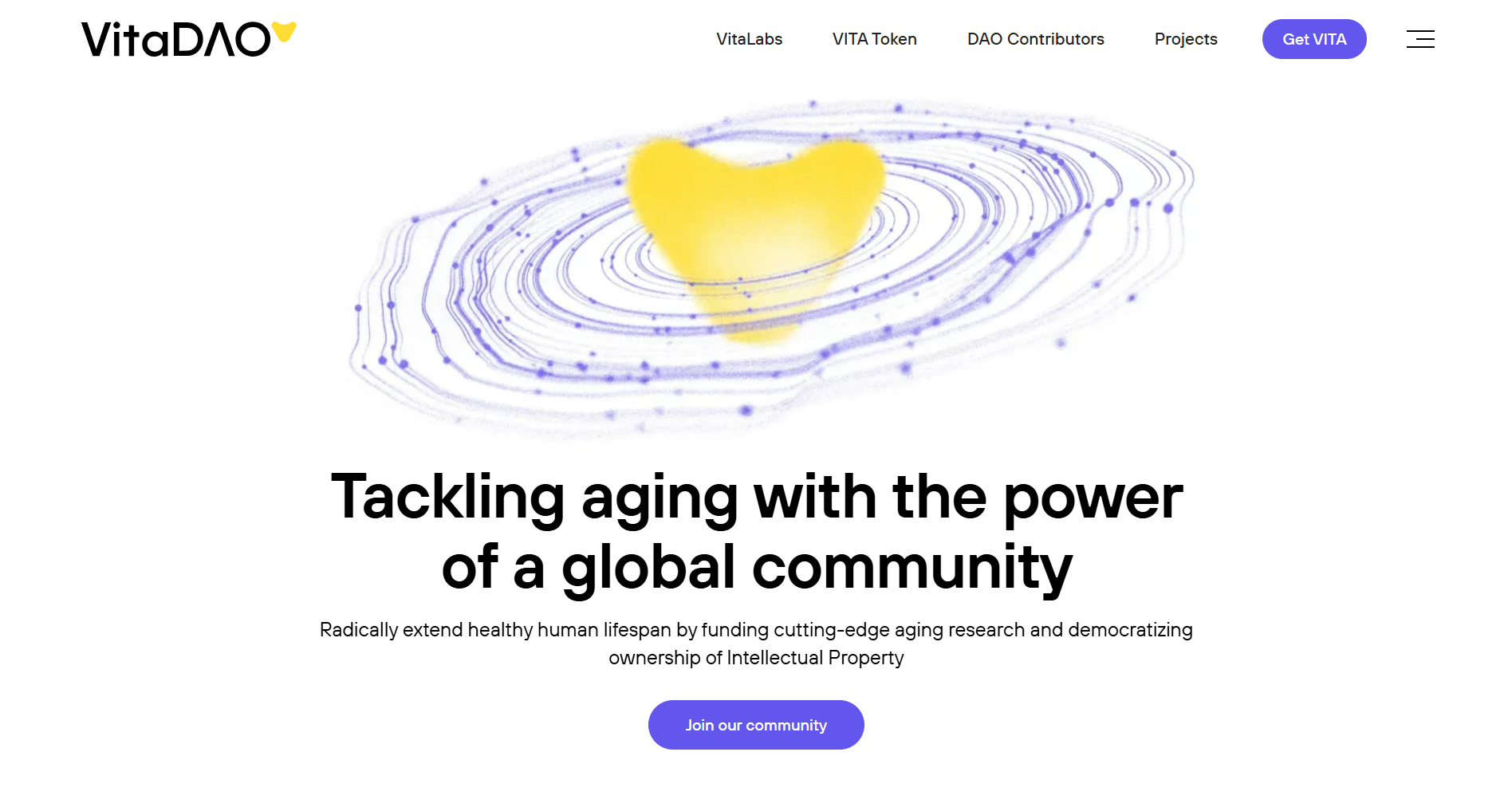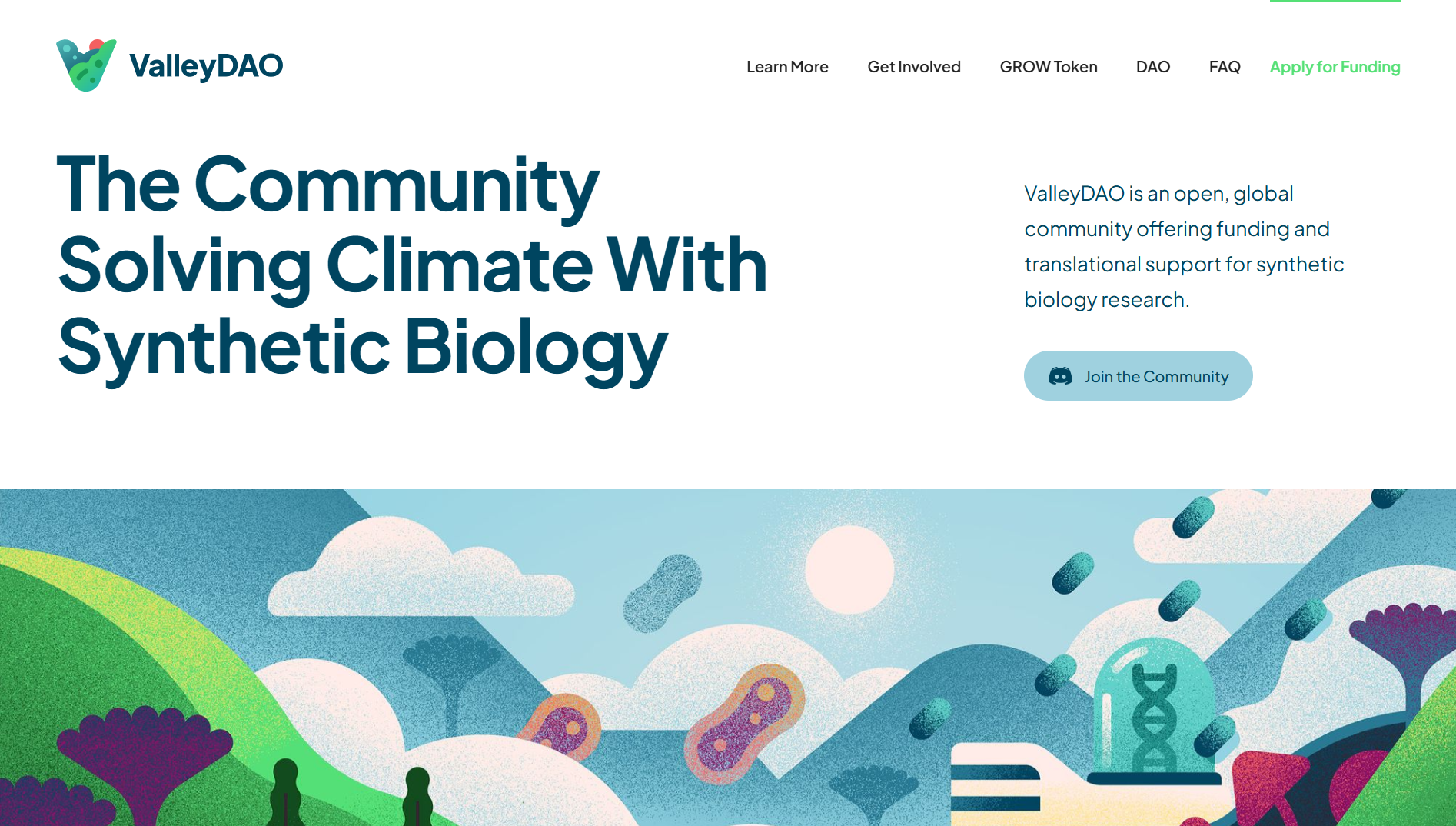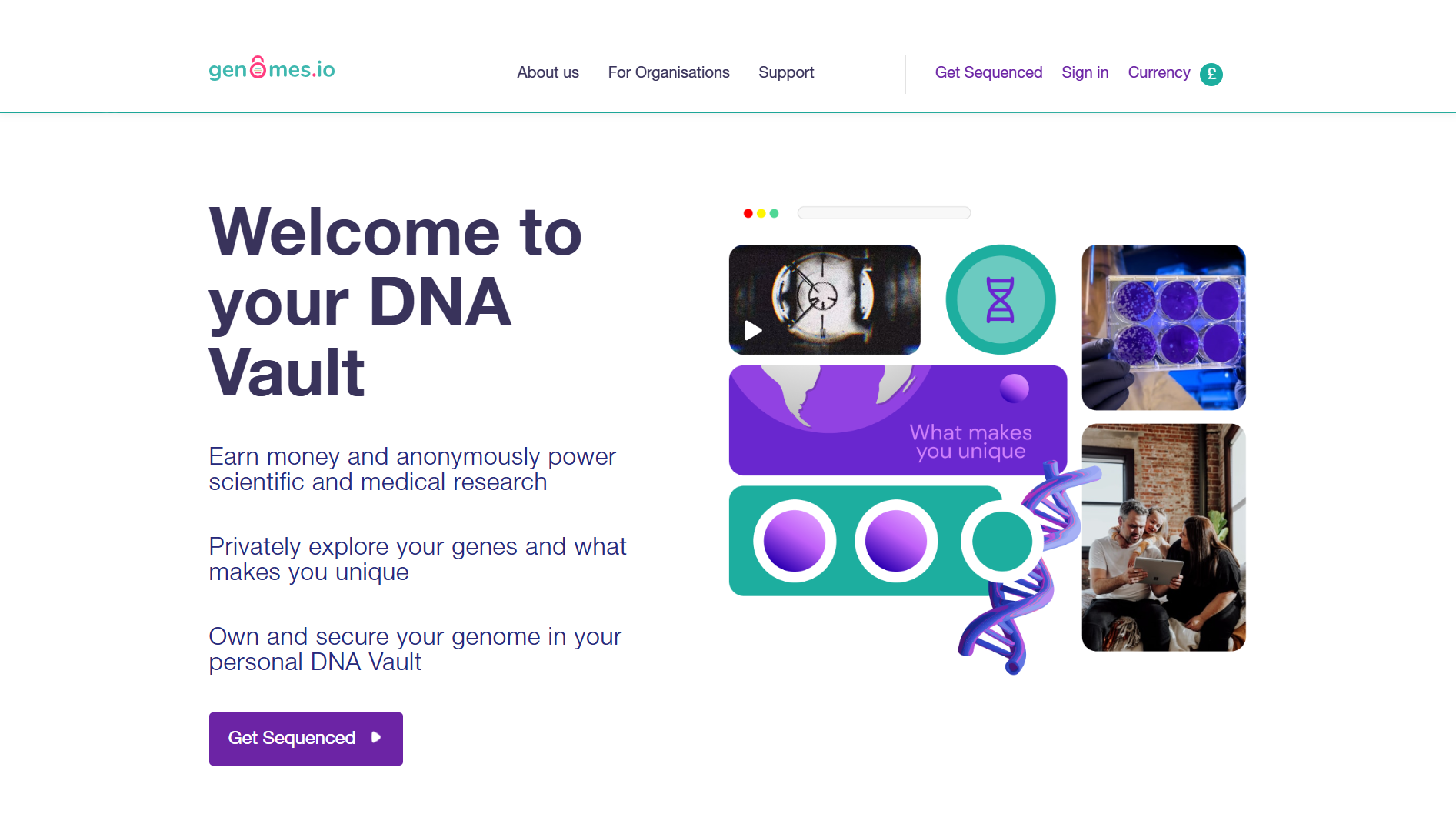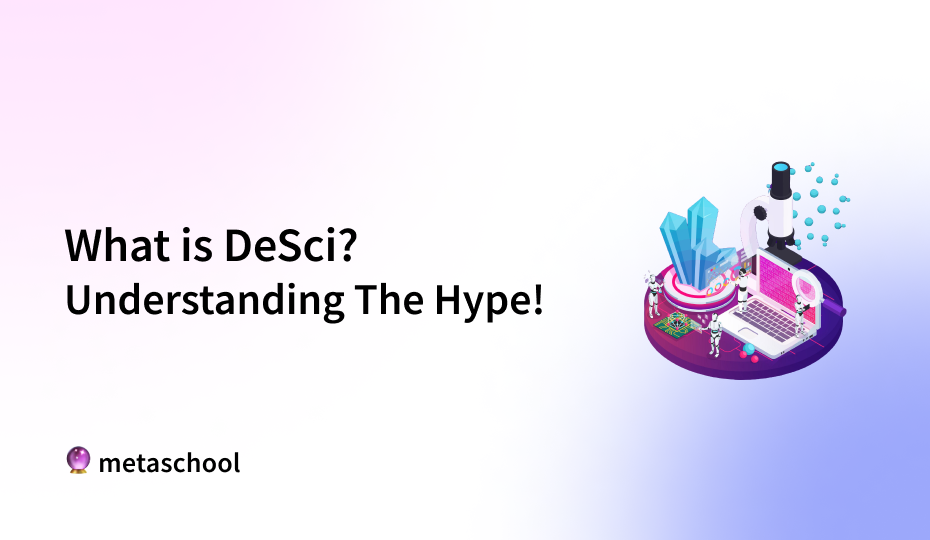Table of Contents
The intersection of blockchain technology and science has introduced an innovative approach to addressing systemic inefficiencies in the scientific field. Decentralized Science (DeSci) utilizes the principles of decentralization, transparency, and tokenization to revolutionize how research is conducted, funded, and shared. By harnessing blockchain’s capabilities, DeSci aims to democratize scientific processes and overcome hurdles such as data inaccessibility, publishing gatekeeping, and misaligned incentives.
What is Decentralized Science (DeSci)?
Decentralized Science, or DeSci, is an emerging movement that seeks to revolutionize the way scientific research is conducted, shared, and funded. By leveraging blockchain technology and its associated tools — such as tokens, non-fungible tokens (NFTs), and decentralized autonomous organizations (DAOs) — DeSci aims to create a more open, transparent, and community-driven scientific ecosystem.
To learn more about NFTs, checkout our comprehensive resources:
At its core, DeSci is built on the belief that scientific knowledge should be accessible to everyone and that the process of research should prioritize collaboration and transparency over exclusivity and profit-driven motives. Traditional systems of research are often hindered by gatekeeping, lack of funding, and restrictive intellectual property practices. DeSci addresses these challenges by enabling scientists to raise funding, conduct experiments, share data, and distribute insights on decentralized platforms.
How Blockchain Powers DeSci
Blockchain technology underpins DeSci’s ability to create a transparent, immutable, and efficient scientific ecosystem. By leveraging the unique features of blockchain, DeSci addresses critical inefficiencies in traditional scientific practices (more on that later) and fosters collaboration:
- Immutable Scientific Records: Blockchain ensures that all research data, publications, and reviews are permanently recorded. This prevents tampering, maintains trust, and provides an auditable trail of scientific progress.
- Decentralized Autonomous Organizations (DAOs): DAOs empower researchers and communities to collectively fund and govern scientific initiatives. They foster democratic decision-making, align incentives with community goals, and enable global participation in research funding and prioritization.
- Smart Contracts: Automated contracts facilitate secure, transparent, and efficient distribution of resources, rewards, and intellectual property. They enable predefined agreements that are executed without intermediaries, reducing administrative overhead.
- Incentivized Collaboration: Blockchain introduces tokens and NFTs to incentivize collaboration and reproducibility in research. Scientists can earn tokens for publishing data, validating results, or participating in peer reviews, creating a self-sustaining ecosystem of innovation.
- Ownership and Monetization: Through tokenized intellectual property (e.g., IP-NFTs), researchers retain ownership of their discoveries. This allows them to monetize their work directly while ensuring transparency and equitable distribution of profits.
- Secure Data Sharing: Blockchain enables secure, privacy-preserving data sharing, allowing researchers to collaborate while maintaining control over sensitive information. This is particularly valuable in fields like genomics and clinical research.
By integrating these features, blockchain empowers DeSci to build a decentralized scientific infrastructure that is more equitable, transparent, and accessible to all.
Challenges in Traditional Science
The current academic research system faces numerous challenges that impede progress, innovation, and accessibility. These systemic inefficiencies, from restrictive data sharing to funding bottlenecks, create barriers that hinder scientific advancements.

1. Data Sharing
- Limited Accessibility: Traditional systems often restrict access to critical datasets, making it difficult for researchers to validate findings or collaborate effectively.
- Lack of Provenance: It is challenging to trace the origins and modifications of scientific data, leading to concerns about reliability and reproducibility.
- Ownership Issues: Archaic practices frequently deny researchers proper control over their work, as institutions and publishers claim rights to published data.
2. Research and Publishing
- Peer Review Problems: While peer reviews are integral to scientific validation, they can be slow, inconsistent, and biased, sometimes serving as gatekeeping mechanisms that hinder innovation.
- Intellectual Property Barriers: Strict intellectual property (IP) regulations and patents often limit open sharing of discoveries, stifling collaborative efforts.
- Gatekeeping and High Fees: Traditional academic journals act as gatekeepers, charging exorbitant open-access fees that restrict publication opportunities and limit public access to critical knowledge.
3. Funding Challenges
- Bureaucratic Processes: Securing research funding often involves lengthy application processes, diverting researchers’ focus from their work.
- Misaligned Priorities: Researchers may have to tailor their proposals to align with funders’ interests rather than exploring high-risk, high-reward ideas.
- Private Funding Bias: Private funders may prioritize profit-driven outcomes, resulting in biased research findings that lack societal impact.
4. Lack of Reproducibility
- Insufficient Data Sharing: Limited availability of raw data makes it difficult for researchers to reproduce and validate existing findings.
- Lack of Incentives: Traditional systems offer little motivation for researchers to invest in validating or reproducing others’ work, leading to unreliable conclusions.
5. The ‘Valley of Death’
- Gap Between Research and Application: Bridging the transition from fundamental research to practical applications is a significant hurdle. Promising discoveries often fail to reach commercialization due to funding constraints and inefficient collaboration between academia and industry.
How DeSci Solves These Challenges
Decentralized Science (DeSci) offers innovative solutions to the challenges plaguing traditional science. By leveraging blockchain technology, DeSci introduces transparency, accessibility, and equitable participation in the scientific ecosystem.

1. Transforming Data Sharing
- Open Access Repositories: DeSci creates decentralized repositories for storing and sharing data on blockchain ledgers. This ensures data accessibility, integrity, and provenance.
- Ownership and Control: Researchers retain ownership of their data through tokenized systems like IP-NFTs, allowing them to monetize their work while maintaining transparency.
- Global Collaboration: Decentralized platforms enable seamless international collaboration, allowing researchers from diverse backgrounds to contribute to and benefit from shared resources.
2. Revolutionizing Research and Publishing
- Transparent Peer Review: Blockchain-powered platforms enable verifiable and incentivized peer review processes, reducing bias and delays while enhancing accountability.
- Tokenized IP: By tokenizing intellectual property, researchers can bypass traditional publishing gatekeepers, directly monetizing their work and maintaining control over its distribution.
- Lower Fees: DeSci eliminates the need for costly publication fees by creating open-access platforms, democratizing the sharing of knowledge.
3. Innovating Funding Models
- Decentralized Funding Mechanisms: Platforms like DAOs pool resources from global communities, enabling equitable distribution of funds for diverse research projects.
- Tokenization: Scientists can tokenize discoveries as IP-NFTs, attracting investments and providing liquidity during early research stages. This model also aligns funding with community-driven priorities.
- Quadratic Donations: This innovative funding approach ensures fair allocation of resources, prioritizing projects that receive widespread support over those backed by a few high-net-worth individuals.
4. Enhancing Reproducibility
- Incentives for Validation: DeSci introduces token rewards and reputation systems to encourage researchers to reproduce and validate findings, improving the reliability of scientific work.
- Immutable Records: Blockchain technology ensures that data and methodologies remain immutable and accessible, enabling rigorous validation of research findings.
5. Bridging the ‘Valley of Death’
- Early-Stage Liquidity: Tokenized research and decentralized funding platforms provide the resources needed to transition discoveries from the lab to real-world applications.
- Streamlined Collaboration: DeSci platforms foster partnerships between academia, industry, and the public sector, accelerating the commercialization of innovative ideas.
DeSci represents a groundbreaking approach to overcoming the limitations of traditional science. By integrating blockchain technology into the scientific ecosystem, it addresses systemic inefficiencies, such as restricted data sharing, opaque publishing practices, and inequitable funding. With its potential to democratize access, incentivize collaboration, and foster innovation, DeSci paves the way for a more transparent, inclusive, and impactful future for scientific research.
Notable DeSci Projects
VitaDAO
VitaDAO is at the forefront of decentralized scientific research, focusing on extending human healthspan and improving longevity. By funding early-stage projects and supporting the commercialization of their outcomes through spin-outs, VitaDAO bridges the gap between groundbreaking research and real-world applications.

One of VitaDAO’s standout features is its collective approach to funding, where global community members pool resources to support transformative research. This decentralized funding model has attracted significant backing from major players such as Pfizer and notable figures like former Coinbase CTO Balaji Srinivasan. With over $4 million raised, VitaDAO demonstrates the potential of community-driven science.
VitaDAO challenges the traditional pharmaceutical industry’s monopolization of intellectual property (IP). By decentralizing ownership and access to IP, it ensures that innovative therapeutics are widely available and not restricted to a privileged few. This model democratizes access to cutting-edge treatments and empowers researchers to work on high-risk, high-reward ideas without institutional barriers.
AthenaDAO
AthenaDAO addresses a critical gap in healthcare research—women’s health. Historically, this area has suffered from severe underfunding, with conditions like menopause and PCOS (polycystic ovary syndrome) receiving minimal attention. For example, menopause and its associated symptoms are often excluded from global disease burden databases, highlighting the neglect in addressing these widespread issues.

AthenaDAO’s mission is to revolutionize women’s health research by fostering a global, decentralized community dedicated to improving understanding and treatment. It funds projects related to ovarian aging, endometriosis, uterine fibroids, and more. Through collaboration with researchers, computational modelers, and enthusiasts, AthenaDAO ensures that these underrepresented conditions are thoroughly investigated and addressed.
By leveraging decentralized funding mechanisms, AthenaDAO brings much-needed attention and resources to women’s health, creating an inclusive platform for innovation and progress in an overlooked field.
ValleyDAO
ValleyDAO focuses on using synthetic biology to tackle global sustainability challenges. This field involves engineering new biological systems or modifying existing ones to address pressing issues like climate change, pollution, and energy production.

Its research spans several impactful areas, including the development of renewable energy sources through biological innovations, the creation of bacteria capable of breaking down pollutants to clean the environment, and the engineering of crops that are more nutritious and resilient to environmental stressors.
As a decentralized community of scientists, entrepreneurs, and enthusiasts, ValleyDAO champions a collaborative approach to sustainability. By democratizing access to synthetic biology, it ensures that breakthroughs in this transformative field are not limited to a few institutions but are made accessible to address global challenges collectively. This model fosters innovation and inclusivity, paving the way for impactful solutions to some of the world’s most urgent problems.
GenomesDAO
GenomesDAO pioneers the decentralized approach to genomic data ownership and research. Built on the belief that individuals should have full control over their genetic information, it provides a secure and privacy-preserving platform for storing and sharing genomic data.

Users manage their data through a secure DNA Vault, accessible via the GenomesDAO mobile app. This allows individuals to decide who can access their genomic information and for what purposes. Pharmaceutical companies, academic researchers, and biotech organizations can query this data for insights into disease mechanisms or drug development without compromising user privacy.
GenomesDAO aims to build the world’s largest user-owned genomic database, fostering transparency and trust in genomic research. By combining security, ownership, and accessibility, it bridges the gap between personal data sovereignty and collaborative scientific advancements.
Future of DeSci
The potential of DeSci lies in its ability to disrupt entrenched systems and establish a more equitable and efficient scientific ecosystem. By democratizing access to knowledge, streamlining funding processes, and promoting transparency, DeSci could pave the way for groundbreaking discoveries that benefit society as a whole.
However, widespread adoption of DeSci faces challenges such as resistance from traditional institutions, scalability issues, and the need for global standards. Success will depend on fostering trust, building robust infrastructures, and demonstrating tangible improvements in research outcomes.
Conclusion
Decentralized Science (DeSci) represents a bold step toward transforming the way research is conducted and shared. By integrating blockchain technology with scientific practices, DeSci seeks to overcome the inefficiencies of traditional systems, empowering researchers and democratizing innovation. As the movement gains momentum, it holds the promise of reshaping science for a more open, collaborative, and impactful future.
Related Reading:
- Building a Web3 Staking Platform: A Comprehensive Guide
- Top 15 Meme Coins: A Brief Analysis
- What is DexScreener: A Comprehensive Technical Guide 2024
- The Sepolia Faucet: Comprehensive Guide for Developers 2024
FAQs
How does DeSci work?
DeSci operates by leveraging blockchain technology to decentralize scientific research. It allows researchers to publish findings, share data, and access funding transparently and collaboratively, bypassing traditional gatekeepers like academic journals and funding bodies. Smart contracts and tokenized incentives ensure trust, ownership, and equitable distribution of resources in the scientific community.
What is the impact of DeSci on a critical industry?
DeSci is transforming healthcare by accelerating drug discovery and ensuring transparency in clinical trials. It provides open access to research data, fosters collaboration across borders, and reduces costs associated with proprietary platforms, ultimately improving patient outcomes and global health equity.
What is an example of a decentralized technology?
Blockchain is a prime example of decentralized technology. It records transactions securely across a distributed network of nodes, ensuring transparency, immutability, and resistance to censorship. Applications include cryptocurrencies, supply chain management, and decentralized finance (DeFi).
What is decentralization and its features?
Decentralization refers to distributing control across multiple nodes or participants instead of relying on a single central authority. Key features include:
Transparency: Data and processes are openly accessible.
Security: Redundancy across nodes reduces risks of single points of failure.
Autonomy: Participants operate independently within the system.
Scalability: Supports distributed, large-scale operations efficiently.
